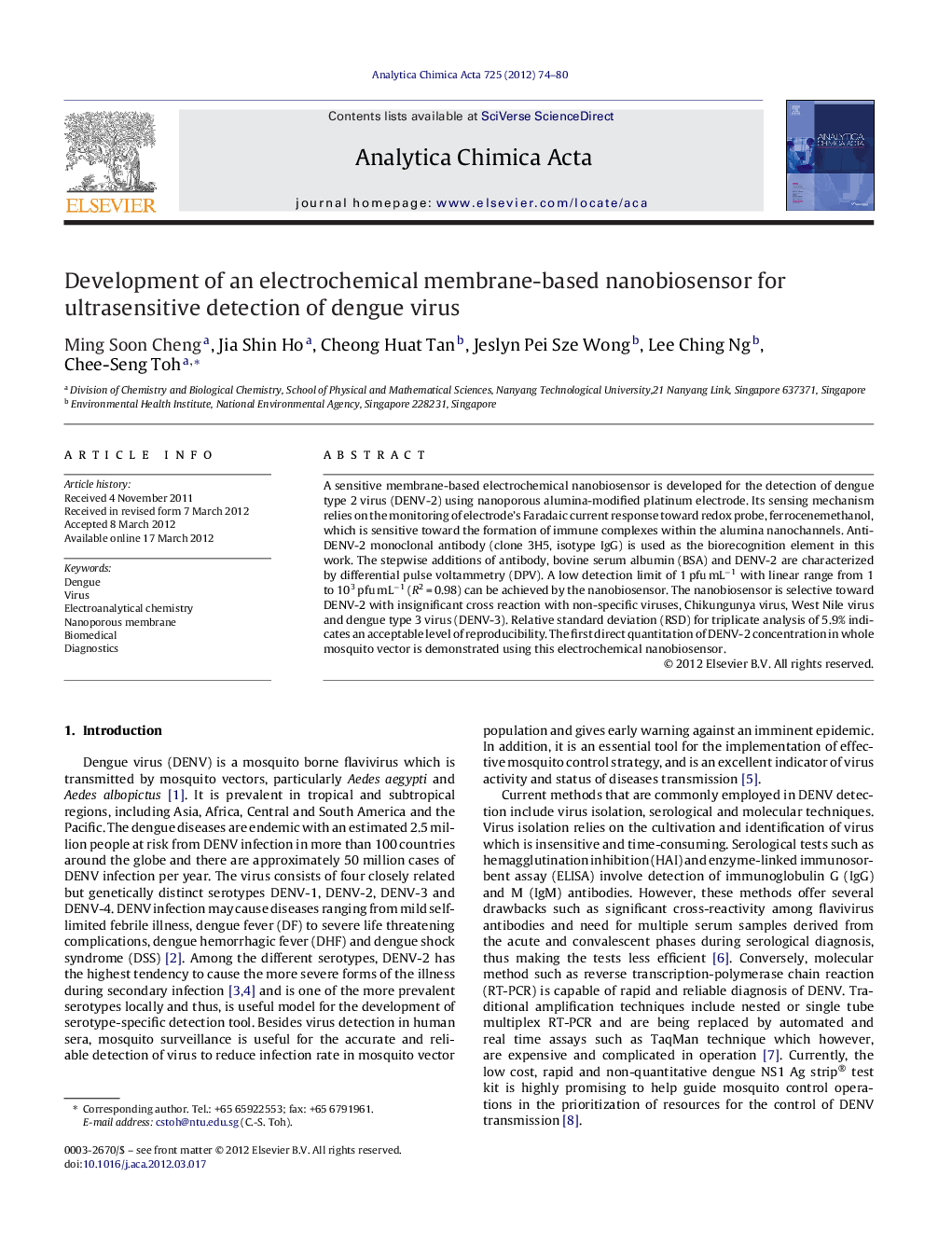| Article ID | Journal | Published Year | Pages | File Type |
|---|---|---|---|---|
| 1166165 | Analytica Chimica Acta | 2012 | 7 Pages |
A sensitive membrane-based electrochemical nanobiosensor is developed for the detection of dengue type 2 virus (DENV-2) using nanoporous alumina-modified platinum electrode. Its sensing mechanism relies on the monitoring of electrode's Faradaic current response toward redox probe, ferrocenemethanol, which is sensitive toward the formation of immune complexes within the alumina nanochannels. Anti-DENV-2 monoclonal antibody (clone 3H5, isotype IgG) is used as the biorecognition element in this work. The stepwise additions of antibody, bovine serum albumin (BSA) and DENV-2 are characterized by differential pulse voltammetry (DPV). A low detection limit of 1 pfu mL−1 with linear range from 1 to 103 pfu mL−1 (R2 = 0.98) can be achieved by the nanobiosensor. The nanobiosensor is selective toward DENV-2 with insignificant cross reaction with non-specific viruses, Chikungunya virus, West Nile virus and dengue type 3 virus (DENV-3). Relative standard deviation (RSD) for triplicate analysis of 5.9% indicates an acceptable level of reproducibility. The first direct quantitation of DENV-2 concentration in whole mosquito vector is demonstrated using this electrochemical nanobiosensor.
Graphical abstractFigure optionsDownload full-size imageDownload as PowerPoint slideHighlights► Label-free nanobiosensor using virus capture method. ► Direct virus particles detection with specific virus identification. ► Detection range of virus from 1 to 1000 pfu mL−1 with less than 1 h analysis time.
